In 2018, Sweden’s Global Challenges Foundation invited extensive and detailed proposals on how best to improve the ways humankind sustains life on Earth.
There were three primary sections to the many guidelines for their strictly mandated contest. In addition, one of their strictures was to keep the current political structure of nation states exactly as it was.
Below is The Humanity Initiative’s entry to the contest. We soon will post a three-page synopsis, free from the strictures of the GCF contest, more accessible to the curious changemaker!

THE WATERSHED PROPOSAL
SECTION 1. Summary of the design, including institutions, regulations, decision-making paths and control mechanisms it involves, as well as how key individuals and other decision-making bodies are to be appointed.
INTRODUCTION
The Humanity Initiative proposes to transform global governance by creating a supra-national allegiance keyed to the great river systems of the world. We believe this will place a revitalized environmental and social consciousness at the forefront of civilization and invite a profound new choreography of positive change.
Rivers are the arteries of life on Earth, ancient flows that bless every sentient being with our most precious resource. Water sustains our life and nourishes our soul. Rivers also transcend cultural and political boundaries, inviting all who share their benefits into a natural alliance — one often overlooked.
If we encourage nations and states within each watershed to embrace this natural alliance — and, further, to abide by the collective insight and will of their own “watershed alliance” as well as of an assembly of alliances from across the globe — we will foster governing decisions that measure progress through the eyes of future generations, decisions that no longer suffer a narrow-minded, self-serving focus on what is expedient or purely political, thus radically diminishing humanity’s toxic predilection for greed and violence.
To do this, we first need to establish overarching, cohesive and vibrant watershed alliances among nations and states that exist within common river systems — or that inhabit a group of islands which share local ocean resources. This reconsideration of our geographic identity would begin a process of re-igniting environmental consciousness and of decreasing religious and political rancor.
We first need to establish
overarching, cohesive and vibrant watershed alliances
among nations and states that exist within common river systems
More than simply “environmental NATOs” of some sort, these alliances would become active, daily partners for all current forms of governments. They would provide research and ideas, help build consensus, and conduct plebiscites; there are myriad possibilities for aiding local and global endeavor, from peace building to resource management to climate change.
In addition, “watershed summits,” convening representatives of all watershed alliances, would serve as a planetary assembly of positive change and practical oversight, all without the tricky imprimatur of being a government enterprise. Indeed, it could be as much festival as conference, including art, music, film and dance among the seminars and presentations — a compelling combination, in fact, of serious and sunny, of crisis investigation and of Earth-wide celebration of progress made and joy found. We once again could resonant in the remarkable and way too infrequent togetherness we felt, for example, when mankind first landed on the moon or when we celebrated the new millennium.
To create initial understanding and consensus for this approach, we propose that a well-suited international enterprise invite a core group of political, civil, social and environmental scientists to begin designing the blueprint for an inaugural Watershed Conference. The immediate goals for this assembly would include: drafting a mission statement; delineating Earth’s watersheds and inhabited islands; formulating strategy; and identifying lead individuals, funders and organizations to provide support, sharpen focus and accelerate momentum.
WATERSHED CONFERENCE
Our primary recommendation for this inaugural watershed conference is to draft a “Call to Our Earth Home.” This manifesto would elucidate the urgent need for a new maturity and efficacy of global governance, introducing the prospect of establishing watershed alliances for each amalgam of cultures, tribes, nations and states within the geographic boundaries of still-to-be-delineated watershed or island regions.
The conference also would examine the potential of creating some manner of supra-planetary authority or alliance — or, even better, find a entirely new word that speaks well to all peoples, perhaps a “humanitarium.” Composed of representatives of each watershed alliance and each island alliance, this would be a soft-power assembly that will act as the organizing enterprise for Earth-centered consensus. It would provide a range of sophisticated consultation for the individual alliances, as well as, most importantly, offer oversight for international commissions, ones that it would be invited to create by those assembled at the inaugural watershed conference.
Given the necessary shift of global consciousness in adopting this new non-governmental and planet-centric overlay to how the world works — much less within the job of establishing the watershed alliances themselves — it is of course to crucial to create inclusive and positive communication with the world from day one.
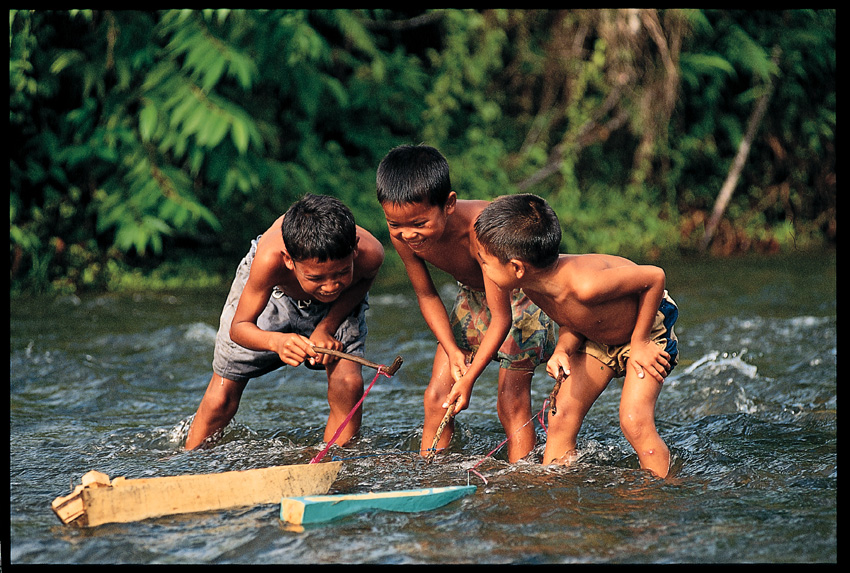
WATERSHED ALLIANCES
Our recommendation is that the conference encourage each watershed and island alliance to create its own charter. It of course must honor the history, needs, public inclination, resources, geography and cultural preferences of all peoples within that alliance’s territory, as well as be entirely supportive of participating in an overarching, planet-centric assembly.
Once the inaugural watershed conference recommends the actual delineation of each alliance, it needs to persuade all tribes and governments to accept this new form of global oversight, urging them to convene within their designated alliances to address the job of creating a fluent interplay of ideas and strategy among them.
Less important challenges include an internal timeline for formalizing the alliance; who will be responsible for negotiating treaties and trust agreements with other alliances; and what the name of each alliance will be.

PLANETARY COMMISSIONS
In welcoming watershed alliances to our planet, there is extraordinary opportunity to consider the creation of international commissions, engaged more in research, debate and overview, than in any form of overt governing. They would serve as advisors and consultants for the watershed alliances — becoming, in combined effect, the public voice of planet Earth.
These commissions would cover a range of responsibilities and interactions across the planet. They would disseminate regular reports — well researched, carefully translated and readily available — to a world-wide audience. Where even slightly appropriate to the subject, they should be dependent on a high component of scientific and technological expertise. In instances where any commission thinks something requires judicial oversight, it would refer it the International Court of Justice.
Initial suggestions for these many commissions and their primary mandate are included several sections below (scroll past three photographs).

SECTION 2. Description of the model, defining the functions of the various components, their areas of responsibility and the extent of their decision-making mandate. Also, how the model is meant to manage both current and emerging challenges and risks.
CREATING PUBLIC AWARENESS
Even before a watershed conference is convened, the sponsoring enterprise should begin a program of public messaging about the concept itself, creating transparency and inviting comment from the outset. This messaging must of course be literate, multilingual, respectful, realistic and persuasive.
The next step is to obtain endorsement for the conference and participation in its development from governments, NGO’s, educators, journalists, civic groups, business leaders and artists.
INITIAL RESPONSIBILITIES OF THE WATERSHED CONFERENCE
Foremost among the early and crucial responsibilities of the watershed conference are:
** To study the overarching role of any supra-planetary assembly. Implementation alone of such an idea requires a sea-change of consciousness. Any recommended design must avoid the twin poisons of bureaucracy and inertia. And not least, it must be an utterly inclusive process: dreamers and doers, saints and sinners, artists and activists must work together to create this planet-centric overlay if it is to have any chance of success.
So the conference must make brilliantly ecumenical recommendations. It must define the precise role for a planetary assembly and determine how to keep it productive, positive, inclusive, and, in effect, only mildly, if at all, political. One of the primary responsibilities, as well, of any supra-planetary assembly will be to publish in detail frequent summaries of current and emerging challenges. These include political crises, refugees, environmental destruction, meteorological events, species preservation, civil strife and terrorism.
** To aid in the process of limiting violence across the continents by establishing an immediate strategy (using social media and traditional public media) for a comprehensive, grassroots call for peace. This “new voice of humanity” would clearly identify the issues, the instigators and mostly importantly sustainable, enduring solutions wherever and whenever conflict threatens to dissolve into war. It of course respectfully would address all cultures, creeds and peoples involved.
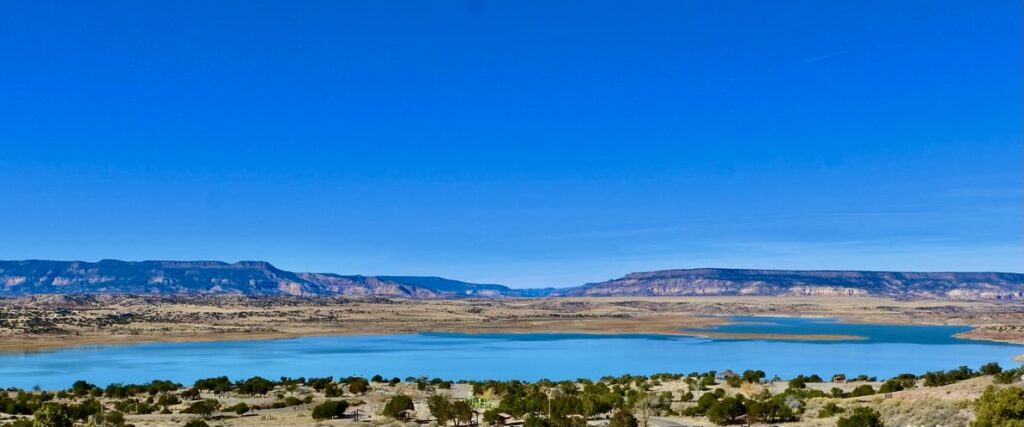
Additional recommendations for the conference include:
* To establish workable, acceptable, fair and pacific guidelines for creating alliances.
* To study current friction points among nation-states, especially to become cognizant of soon-to-be-unEarthed differences and disagreements caused by any such dramatic transition of global governance — yet another reason for this conference to include a healthy range of not only environmental scientists but also peace building and social justice experts.
* To determine how best to establish and foster independent commissions or councils, including suggestions for how each would function, exercise a positive influence, and conduct planetary plebiscites. These commissions also might well be decision-making enterprises in their own right.
* To address how these independent commissions — and any other new institutions or international structures — would function within the current international system of justice and in full respect for bilateral and multinational treaties and conventions (e.g. International Court of Justice, International Atomic Energy Agency, Law of the Sea, The Kyoto Protocol, International Monetary Fund, etc.).
* To delineate each natural watershed and island group, including not only their exact boundaries, but also: quality of the water; rate, seasonality and historical parameters of river flows; traditional and projected methods of transportation along each river; mineral and biological resources within that watershed’s boundaries.
Even as the conference studies and honors the current political mix of each watershed and island region, it also must examine and predict opportunities for the formation of new geographic bounds and relationships, if not new nation-states (or whatever they eventually are named).
* To make recommendations for preserving public lands and wilderness and for protecting wildlife. Again, work on this goal (and on many others) will benefit from the participation of a range of respected international organizations, such as, in this regard, The World Wildlife Fund, Oceana or The Royal Geographical Society.
* To aid alliances in monitoring and publicizing on a regular basis the environmental health of each watershed or island group.
* To help ensure that lakes, rivers, mountains and the rest of our geography receive standing in any legal dispute (cf. Bolivia’s 2010 groundbreaking law, Ley de Derechos de la Madre Tierra, as well as the work of the Earth Law Center).
* To help oversee the transparency and integrity of public voting in each watershed or island region.
* To make recommendations for how many citizens might best represent each watershed region at planet-wide assemblies as well as for how these representatives may best be elected or appointed.

SUGGESTIONS FOR SPECIFIC PLANETARY COMMISSIONS
The process itself of establishing international or intra-planetary commissions could be beneficial in many ways. Not least, the discussion of, research for, and potential public participation in work being done to create commissions would help establish a positive and inclusive tone in support of this new global governance.
In fact, the identity of current and emerging challenges and the discussion of risks could well serve to diminish much of the predictable discord and inherent radical differences of opinion within any transition. It might become a primer, in fact, for providing innumerable insights on and resources for how we could truly, at long last, begin to respect each other as “riders on Earth together, brothers in the eternal cold” (as Archibald MacLeish wrote in The New York Times on December 25, 1968, at the moment when humankind ‘discovered’ Earth from outer space).
Therefore, both the process and publicity for these commissions would be powerful allies in overcoming hard resistance on the part of many to any idea for a new global governance.
Here are 27 suggestions for commissions and a word or two about their mandate as partner and resource for each watershed alliance and island group. This list includes, in a few cases, recommended background material (to lend a little spice to the mix).
Ahimsa and Biophilia Commission
In deep recognition of humankind’s instinctive bond with the natural world, to help protect the lives and integrity of all sentient beings; in addition, to promote a profound understanding of and respect for the thoughts and feelings of animals (for an enlightening and sobering read: Beyond Words, by Carl Safina).
Civil Society Commission
To help establish and preserve effective, inspiring non-governmental organizations, devoted to the best interests and the will of the people.
Cosmos Commission
To help continue humankind’s peaceful study of outer space, while also working to keep the Earth’s atmosphere free from environmental or technical pollution or from any manner of weaponry.
Diversity Commission
To assist in the protection of all human diversity, from race to tribe to language to art to cultural ritual.
Elections Commission
To assist in monitoring elections, especially in the recommendation and implementation of electronic governance (cf. forefront efforts in Estonia, Singapore and South Korea).
Education Commission
To help devise and implement educational strategy, particularly as it relates to fostering a humanistic ethic across the continents.
Entrepreneurship Commission
To foster the development of new businesses. This includes monitoring the regulatory and financial environment for creating private sector enterprises. It also extends to providing consultation and oversight on relationships between capitalism and any form of democracy.
Environmental Commission
To monitor all manner of Earth’s environmental health; to encourage governments and the public to be keenly aware of environmental challenges and concerns; to recommend and help implement short- and long-range solutions.
Food Commission
To monitor the health and safety of food, including the protection of arable land and edible ocean resources.
Gender Commission
To help ensure gender equality, with an emphasis on public awareness and public pressure.
Health, Nutrition and Disease Commission
To help recommend measures of optimum health and nutrition; to monitor and publicize the incidence and spread of disease and epidemics.
Housing and Development Commission
To help provide affordable and green housing; to help ensure that new infrastructure takes full account of natural meteorological phenomena.
Human Rights Commission
Working with leading human rights organizations, to monitor and report on violations of human rights and to establish an annual human rights convention.

Internet Commission
To promote fair and safe access to the Internet; to monitor the role of social media in providing safe and truthful content to consumers.
International Enterprise Commission
To help monitor the planetary outreach of trans-national enterprises (corporations; environmental, political and religious groups; etc.); to help ensure that they work for the benefit of the planet.
Joy Commission
To encourage joy, humor, play, fun and laughter (cf. Gross National Happiness in Bhutan).
Kindness Commission
To remind the world of the necessity of kindness; to help establish festivals, seminars, plays, films and art that remind us of the many benefits of acting kindly.
Listening Commission
To speak to the importance of listening well; to establish forums, programs and seminars on the art of negotiation.
Mythology Commission
To create a vibrant, literate and accessible archive of mythology, from across the continents (including an Internet site that provides personal access to all the gods and goddesses…out of need or curiosity).
Peace Commission
To help create a contagion of peace; to draft a declaration of peace and interdependence; to conduct programs that encourage peaceful settlement of conflict; to publicize examples of peaceful intent and success, as well as the history of peace-loving peoples (such as the Hadya, the Moriori and the Batek); to conduct seminars, conferences and artists retreats devoted to the study of peace.
(A quick reminder: “There is no biological, psychological or physiological evidence to prove that violence, aggressive behavior, and war are inherent characteristics in human beings.”(Maria Montessori, Education and Peace, 1992)
Refugees Commission
To provide immediate and sustainable assistance to refugees, helping with resettlement in the place they prefer (working in primary partnership perhaps with the International Rescue Committee).
Rogue Actors and Terrorism Commission
To create a planetary network devoted to identifying rogue or non-state actors and terrorists, not least helping to contain or eliminate their destructive efforts; most crucially, to help persuade disaffected youth that, instead of a short path of violence, they could well have a long, peaceful life.
As but one recent example of ever-possible peace, after 52 years of guerilla warfare, here’s a statement from Colombia’s FARC rebels in 2017: “We are transforming ourselves for a new, democratic fight. Not demobilizing but laying down our weapons to become an open and legal political movement.” (NY Times, Wednesday, June 28, 2017)
Spiritual Commission
To preserve spiritual and religious traditions; and in doing so, to promote the primacy of peaceful coexistence inherent in spiritual practice.
Sports Commission
To promote respectful and fair competition, especially in younger generations. (Partnering if possible with the IOC, FIFA, etc.)
Transportation Commission
To monitor the safety and fluency of all land, sea and air transportation.
Weather and Climate Commission
To help monitor the world’s weather; to provide advance notice of potentially damaging events to governments and the general public; to keep track of major trends in meteorology.
The forces of nature are perhaps humankind’s most dramatic reminder of being unavoidably inter-related. Tectonic plates have no regard for humans; nor do hurricanes, wildfires, atmospheric flows or ocean currents. So this commission fosters advanced scientific knowledge of the dynamics and whims of natural forces. It also encourages broad public awareness of and active participation in the preparedness, encountering and clean-up of the assaults of nature.
Youth Commission
To provide public forums for the dreams and concerns of people under 25; to help cross-pollinate their ideas for a better world.
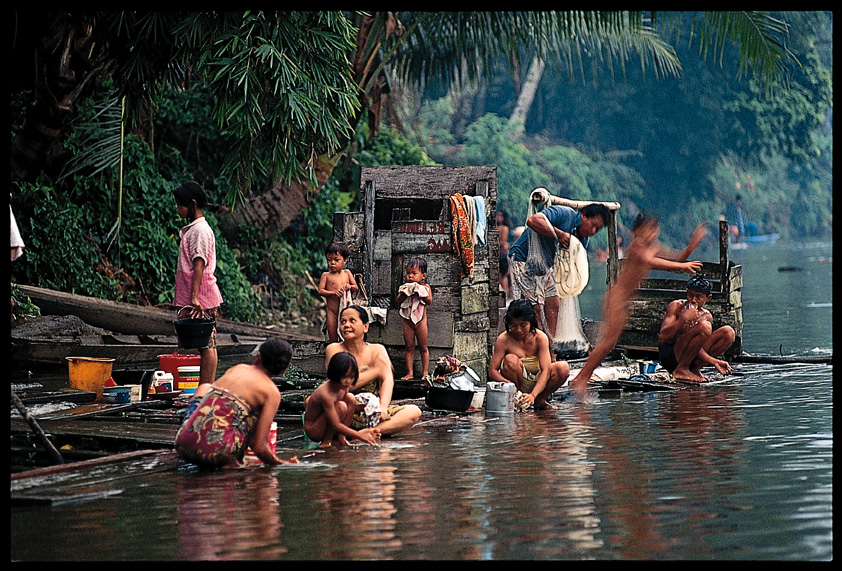
RELIANCE ON EXISTING INSTITUTIONS
This (almost) goes without saying: a major characteristic of any new global governance should be an inherent reliance on a myriad of respected scientific, peace building and civil society institutions (e. g. Pugwash Conference on Science and World Affairs, Woods Hole Oceanographic Institute, Doctors Without Borders, Nuclear Age Peace Foundation, Intergovernmental Panel on Climate Change, etc.) for their expertise in such areas as monitoring environmental health, negotiating sustainable peace…or just plain understanding the needs of each other.
A CHANGE OF CONSCIOUSNESS
Every drop of water that we encounter during our days has the potential to remind us of how we are interconnected with every sentient being. In addition, the mixing power of the oceans and of the naturally occurring weather systems on the planet reminds us that each watershed region is inevitably bound to each other.
Recognizing that humankind is in desperate need of a profoundly more mature approach to how we conduct our lives on our miraculous but assaulted Earthome, this proposal therefore aims to take vigorous advantage of our natural affinity with water, tuning this necessary new consciousness keenly to an environmental and humanistic ethic, lifting us into a kinder, wiser, more peaceful future.
This proposal therefore aims to take vigorous advantage of our natural affinity with water,
tuning this necessary new consciousness keenly to an environmental and humanistic ethic, lifting us into a kinder, wiser, more peaceful future.
In many ways, this assertive nurturing of a watershed consciousness — where the reality of our shared and precious resource becomes more and more predominant in our thinking — will give us a clearer mind and heart about choosing what to concentrate on in our struggle to survive. This clarity naturally should subsume political, economic and social divisions that far too long have kept us in defensive, antagonistic or militaristic postures with each other.
Ultimately, this reawakening to the fact that we are a part of nature, not in control of it, combined with our inarguable reliance on life-giving water, encourages a profound and accessible re-understanding of how we depend on each other. This, in turn, encourages the necessary respect for all sentient beings that is absolutely key to any proposal for global governance worth its wait in words.
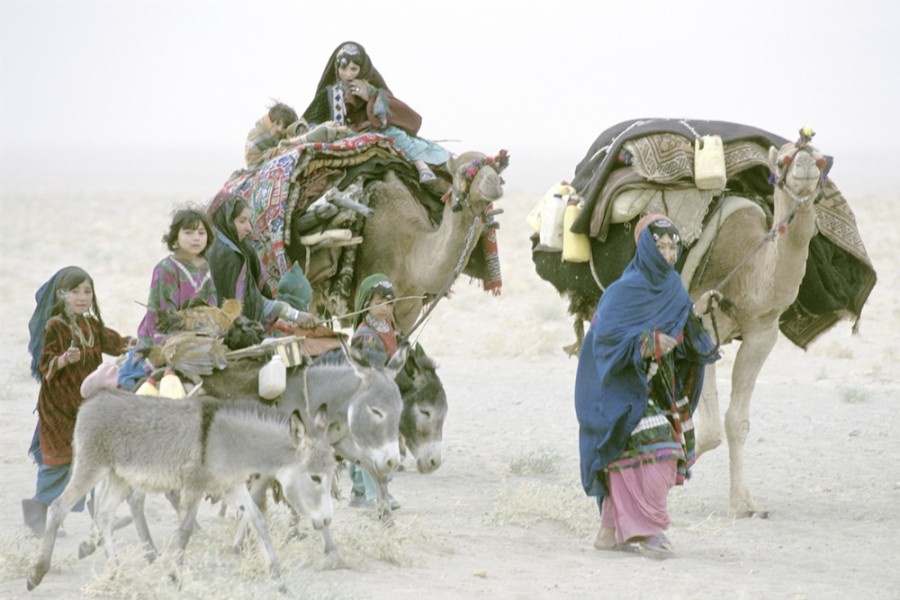
SECTION 3. Argumentation demonstrating how the model meets the assessment criteria. For each of the criteria listed in “Criteria”, there are arguments as to how this proposed model meets the criterion.
CORE VALUES
Each planetary commission will be encouraged to instill their work with the paramount ethic of understanding Earth as our common and only home. This awareness leads naturally to treating each other with curiosity, kindness and grace, not least with respect for our equal value.
It creates as well: an overarching consciousness of how intimately we are tied to each other by our dependence on fresh air and clean water; an appreciation of cultural diversity as a vital asset to life on Earth; and a willingness to work well together, to seek compromise, to accept not winning an issue, to sharing wealth, and to maintaining a positive and constructive outlook.
In addition, transparent, pan-global, attentive, and sophisticated oversight by a supra-planetary assembly would help assure attention to these core values.
Such ethical commitment lends itself of course to decisions guided by the good of all humankind — without the complications and dilutions of political overlay. In addition, deterrents to any disregard for core values include a free and independent media, as well as broad availability of arbitration.
Lastly, we recommend that the supra-planetary assembly adopt programs that encourage writers, artists, painters, filmmakers, dancers and musicians to address, applaud, investigate and challenge core values, the reasoning behind these values, and the widespread hopes they embody.

DECISION MAKING CAPACITY
Decision making in this new model is driven by peer pressure, by a raised maturity of perspective, by willing transparency, and by the joy in discovering and working within the raised consciousness of shared humanity. Thus it avoids the lesser machinations, including crippling delays, of combative political struggle.
This is the value in diminishing overt legislative process and engaging in humanistic bargaining instead.
EFFECTIVENESS
The basis in this proposal for the resolution of issues — for bringing us more readily to negotiating tables — is that an inherent and dominating environmental consciousness dramatically raises the bar both on urgency and on the absolute necessity of truly working together. Each improves prospects for reaching fair and timely decisions, no matter how contentious the issue, how elusive the solution.
Also, as the urgency of our environmental crises and the need to work together to solve them becomes the principal ethic of this new global governance, it will foster personal commitment to full and immediate implementation of decisions. There’s nothing like the very human satisfaction of doing something simply because you know it’s right, not because someone or some committee mandated you do so.
And urgency of course is key, as has been dramatically stated by thousands of respected analysts and commentators for five decades. Here’s Robert Michael Pyle in his 2010 essay Evening Falls on the Maladaptive Ape:
“An ethic based on concerns for future human generations alone doesn’t strike me as having much heft, since it hasn’t stemmed our excesses against one another so far. But an ethic founded on the well-being of the supportive fabric might have a chance.”

RESOURCES AND PLANNING
Financing might be relatively easy, for this watershed model is not an expensive overlay. There are no armies to fund, no added court system, and no need for large bureaucracies. It should be a simple task to keep the supra-planetary assembly, the watershed alliances, and the commissions well funded by requested donations from governments, individual, foundations and corporations. There will be hefty public awareness value, as well, in making those donations.
Each watershed state, meanwhile, should maintain an ongoing and up-to-date inventory of its human and material resources, sharing these with the world.
TRUST AND INSIGHT
A major hallmark of our recommended form of governance is, of course, the trust-building transparency woven into the fabric of these new institutions. They are essentially non-political: free of the debilitating struggles of folks running for re-election, garnering favor, or spending all their time raising money, not serving their fellow humans.
If we can indeed implement this humanistic approach to governing, its innate transparency will become one of its most crucial and well applauded features.
FLEXIBILITY
Again, these new institutions are a relaxed and open structure, one that fosters genuinely respectful discussion and debate. This of course leads to a stronger and more personal commitment on the part of assembly representatives to pursue the best recommendations and programs they can. Revisions and improvements become part of the daily discussions, readily engaged.
Also, a supra-planetary assembly likely would decide to sponsor frequent international gatherings. These could well review the programs of every commission, recommend improvements, handle complaints and help settle disagreements.

PROTECTION AGAINST THE ABUSE OF POWER
It bears repeating even as it rolls the eyes of the cynic: we are recommending a kinder form of governance, one that will bring out the best in us. If it works, there will be little or no incentive for abuse of power.
Further, the top “governing” authority, the supra-planetary assembly, could institute whatever means of peer or public pressure it chooses to help keep members in line with core values and a dedication to transparency.
Since they are acting primarily in an advisory and consultative role, the assembly, commissions and alliances have little or no incentive to interfere with the internal affairs of nations, states and tribes. In the same vein, special interests will find no traction within the strong core values and overt transparency of the assembly or the alliances.
ACCOUNTABILITY
Throughout this proposal, we have offered ideas and suggestions that appeal directly to our better angels. We acknowledge in doing so that, yes, governance is surely a tougher and rougher business than what we imagine in this proposal and thus requiries, in the view of many, a more “hard core” or “realistic” approach. We also realize of course that humans are often purely self-interested – ignoring or refusing to act for the greater good.
But it is crucial to emphasize that the idealism of this proposal is necessary and serious. Only if we fully embrace our highest human instincts; only if we really do understand this planet as our common home; only if we trust in each other; only if we create an effective planetary overlay that is unabashedly idealistic and fully transparent; only then will we be able to survive. Only our humanity will save humanity.
So yes, we believe representatives in these new alliances will be held accountable by their own best instincts, by their integrity, reinforced by fellow citizens who trust the idealism and recognize the necessity of this proposal: that civilization might just depend on it.
~ by Tony Balis
Only if we fully embrace our highest human instincts; only if we really do understand this planet as our common home; only if we trust in each other;
from The Watershed Proposal
only if we create an effective planetary overlay that is unabashedly idealistic and fully transparent; only then will we be able to survive.
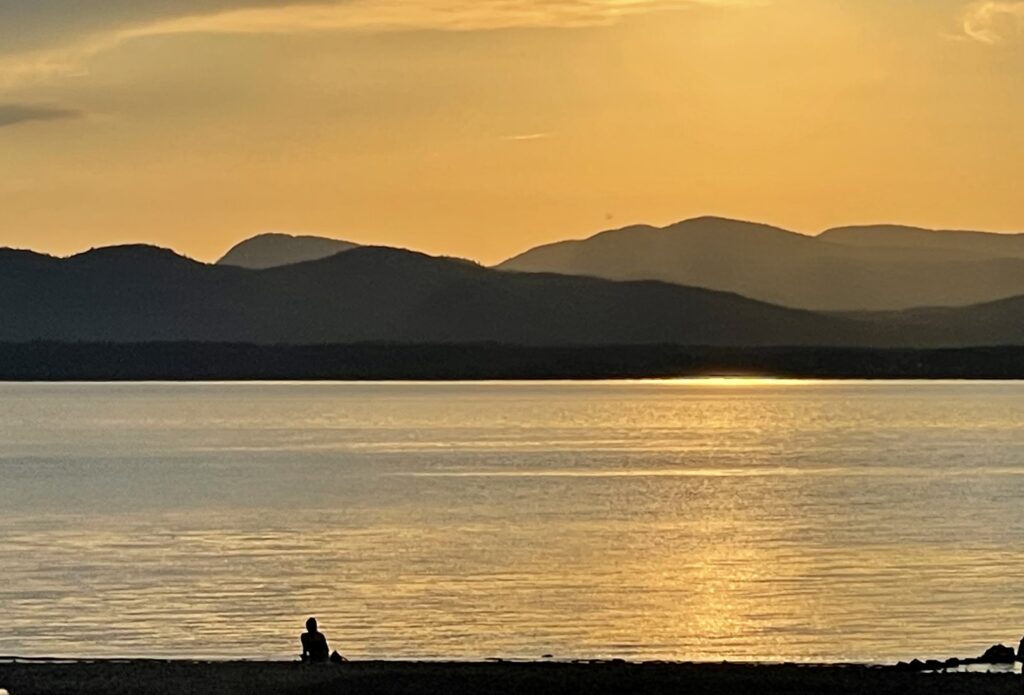
Peacefully shared by Vermont and New York
Finally, let’s consider exactly how our streams of life bind humanity into one inevitable village. This 2021 Australian film “RIVER” traces, with awesome beauty and wisdom, how rivers have shaped human existence. Here’s the official trailer.
© The Humanity Initiative 2022
